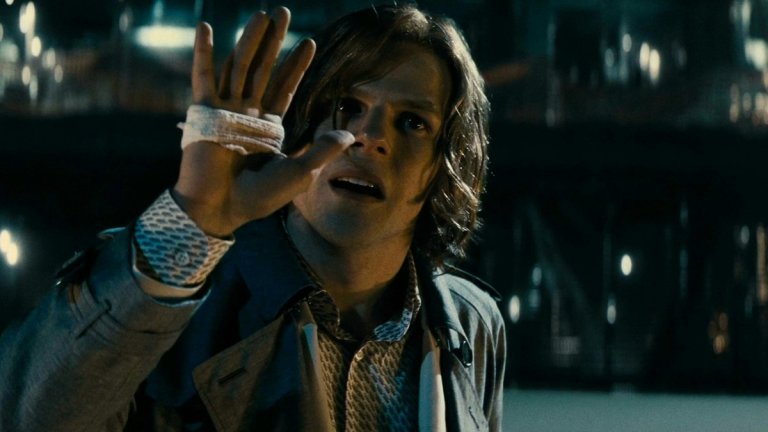Jesse Eisenberg Reflects on His “Serious” Lex Luthor Take
The award-winning actor still stands behind his surprising version of Superman's arch-nemesis.

Even those who dislike Zack Snyder’s trilogy of DC Universe films have to admit that the director brought an idiosyncratic approach to those movies’ longstanding characters. For better or worse, his version of Superman and Batman stood apart from those found in comics, movies, and television. That is perhaps most true of Lex Luthor, the primary villain of Snyder’s second DCEU movie, Batman v Superman: Dawn of Justice. Played by Jesse Eisenberg, this Luthor not only sported a shaggy mane but also bounced off the walls with excitable energy. Where Gene Hackman and Kevin Spacey played Luthor as grandstanding misanthropes in previous feature films, Clancy Brown brought a simmering stoicism to his voice performance in various animated series, Eisenberg’s Luthor was an obnoxious tech-bro, an extroverted version of his portrayal of Mark Zuckerberg in The Social Network.
Like most things in the DCEU, Eisenberg’s Luthor met a great deal of criticism. But while most aspects of Snyder’s films have garnered their strong defenders, not too many have stood up for a supervillain who threatens people with jars of pee and jolly ranchers. But even today, Eisenberg remains proud of his performance. “I felt very personal about it,” he told Deadline. Specifically, the actor praises the work done by Batman v Superman screenwriter Chris Terrio to shape the character. “[He] is a very serious writer, and he’s a very emotional person,” Eisenberg explained.
To be sure, one can see aspects of that thought in the finished product. Where previous writers have simply imagined Luthor as an arrogant scientist or businessman, Eisenberg’s Luthor bases his hatred of Superman on theodicy — the theological inquiry into the existence of evil. When Luthor faces off against Superman late in the film, he explains the nature of God to the man of steel. “See, what we call God depends upon our tribe, Clark Jo, because God is tribal, God takes sides,” he rants. “No man in the sky intervened when I was a boy to deliver me from Daddy’s fist and abominations.” In closing, Luthor paraphrases 16th-century Dutch Philosopher Desiderius Erasmus: “I figured out way back if God is all-powerful, He cannot be all good. And if He is all good, then He cannot be all-powerful.”
But it’s not just Terrio who invested in the character, as Eisenberg revealed that he “thought a lot” about it as well. “I talked with my acting coach about the character a lot, about his backstory with his father and his emotional life—and then people hate me.” While the above-mentioned scene shows the emotional depth the actor brought to Luthor, it also shows why his take was so controversial. Luthor jumps from point to point, underscored by Eisenberg’s wild gesticulating and modulations in voice.
Although Eisenberg admits that he would be “shocked” if he was asked to reprise his role as Luthor, he wouldn’t turn down the opportunity either. “[It] would be a pleasant shock,” he explained. “To me, it was a chance to play this great character that this great writer wrote, and I loved doing that.”
